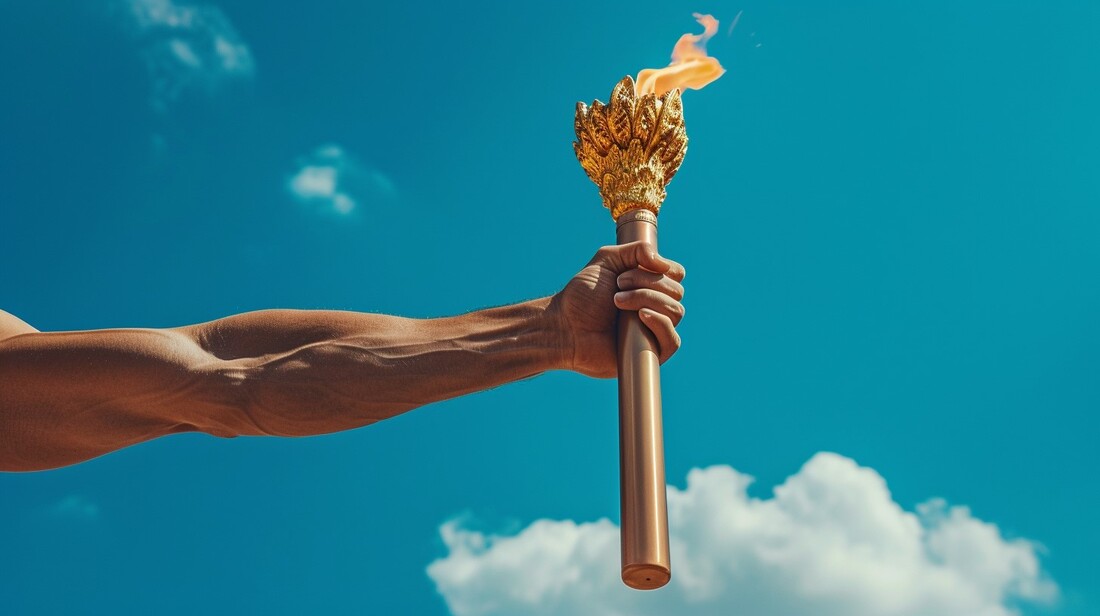From the Field to the Podium: How a Sport Becomes an Olympic Sport
BlogThe Olympic Games are the pinnacle of global athletic competition, where sports from every corner of the world gain unparalleled recognition. But how does a sport earn its place on this prestigious stage? The process of becoming an Olympic sport is far from simple—it’s a journey of meeting strict criteria, gaining international appeal, and navigating the complex decisions of the International Olympic Committee. From grassroots beginnings to global sensations, the story of how a sport becomes an Olympic sport is as captivating as the Games themselves.

Steps as a sport becomes an Olympic sport
Getting a sport into the Olympics isn’t just about being popular; it’s like running a marathon with hurdles at every step. First, the sport needs a global fanbase and an international federation to keep things legit and organized. Then, it has to align with the Olympic values—think fair play, inclusion, and integrity—like ticking all the boxes on a golden checklist. The International Olympic Committee (IOC) gets involved next, reviewing everything from safety to sustainability to ensure the sport fits into their vision. The sport has to stay relevant, exciting, and maintain its standards to keep its place in the Games. This journey of how a sport becomes an Olympic sport is a blend of hard work, global appeal, and a bit of luck, creating a story as thrilling as the Games themselves.
Popularity of the sport and a large fan base
For a sport to even dream about joining the Olympic stage, it needs a massive fan base, like filling entire stadiums worldwide with roaring crowds. We’re talking millions here—around 50 countries must actively play and promote the sport for it to catch the eye of the International Olympic Committee (IOC). It’s not just about casual interest; the sport needs passionate fans who turn up, tune in, and create buzz across continents. This global love serves as a foundation in how a sport becomes an Olympic sport, proving it has the reach and appeal to unite diverse audiences under the Olympic flag. Without this kind of following, the sport might as well be cheering from the sidelines.
International organization of the sport
Having a solid international organization behind a sport is like having a captain steering the ship—it keeps everything on course and running smoothly. For a sport to have any shot at the Olympics, it needs a recognized governing body that enforces rules, ensures fair play, and organizes events worldwide. This organization acts as the sport’s voice, presenting its case to the International Olympic Committee (IOC) and showing that it’s legit, structured, and ready for the big leagues. It also helps the sport maintain consistency, like making sure players in Tokyo follow the same rules as those in Rio. This structure is a cornerstone in how a sport becomes an Olympic sport, proving it can handle the pressure and prestige of the global stage. Without it, the sport would be like a team with no coach—chaotic and unprepared.
Verification and approval of the sport by the International Olympic Committee
Getting a sport verified and approved by the International Olympic Committee (IOC) is like passing a final exam with strict teachers watching your every move. The IOC digs into every detail, evaluating whether the sport aligns with Olympic values like fairness, inclusion, and sustainability. They look at the sport’s international reach, governance, fan base, and safety standards, leaving no stone unturned. A sport’s governing body submits detailed reports, data, and presentations to prove it’s worthy of the Olympic spotlight. The IOC then votes, with its members deciding if the sport makes the cut. This meticulous process is a crucial step in how a sport becomes an Olympic sport, ensuring only the most deserving and well-organized disciplines earn a place in the Games. It’s like being invited to an exclusive club—everything has to be flawless.
How long does it take for a sport to become Olympic?

Getting a sport into the Olympics isn’t a sprint; it’s a marathon that can take years, sometimes even decades. The process is like climbing a mountain—step by step, with no shortcuts. First, the sport needs to grow its fan base and get organized with a strong international governing body. Then, it must meet all the requirements set by the International Olympic Committee (IOC), from global appeal to safety standards. Once the application is submitted, the IOC evaluates everything, which can take several years of reviews, votes, and meetings. This lengthy journey in how a sport becomes an Olympic sport ensures only the best and most prepared sports make it to the world’s biggest stage. Patience and persistence are the name of the game.
Could sport be excluded from the Olympic Games program and why?
A sport can absolutely be kicked out of the Olympic Games, and it’s like being benched for not following the rules. The International Olympic Committee (IOC) keeps a close eye on every sport to make sure it stays relevant, organized, and aligned with Olympic values. If a sport loses global popularity, its governing body fails to maintain standards, or issues like doping scandals arise, it risks getting the boot. Wrestling almost faced this fate in 2013 due to outdated systems and waning appeal but bounced back with reforms. This accountability ensures the Games stay fresh and exciting, showcasing only the best, which is a key part of how a sport becomes an Olympic sport and keeps its place on the roster.
Sports that may soon be included in the Olympic Games

The Olympics are always evolving, and new sports are constantly vying for a spot under the iconic rings. Here’s a list of sports that may soon join the Games, each bringing its own flair to the competition. This is all part of how a sport becomes an Olympic sport—building a case, gaining global love, and meeting strict IOC standards.
- Cricket: With massive fanbases in countries like India, Australia, and England, cricket is a strong contender, especially in its T20 format.
- Squash: Known for its fast-paced action and global appeal, squash has been pushing hard for Olympic inclusion for years.
- Esports: While unconventional, esports’ booming popularity and youth appeal make it a serious candidate for future Games.
- Flag Football: With its high-energy vibe and growing international following, flag football could add a modern twist to the Olympic lineup.
- Karate: Despite being included in Tokyo 2020, karate missed out on Paris 2024, but it’s lobbying for a return.
- Pickleball: This fast-growing paddle sport has captured hearts worldwide, building momentum for a potential Olympic debut.
Each of these sports is making waves, proving they’ve got what it takes to potentially shine on the Olympic stage.
Achieving Olympic status is a monumental feat that demands more than just popularity or skill; it requires a sport to showcase universal appeal, organizational excellence, and the ability to uphold the spirit of the Games. Understanding the steps to how a sport becomes an Olympic sport reveals the dedication, vision, and perseverance required to shine on the world’s greatest athletic stage. As new sports emerge and evolve, this rigorous process ensures that only the most deserving disciplines join the Olympic legacy.
